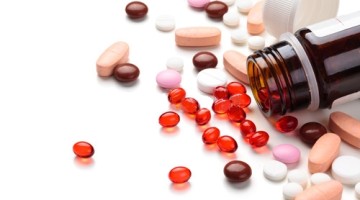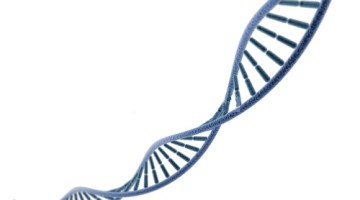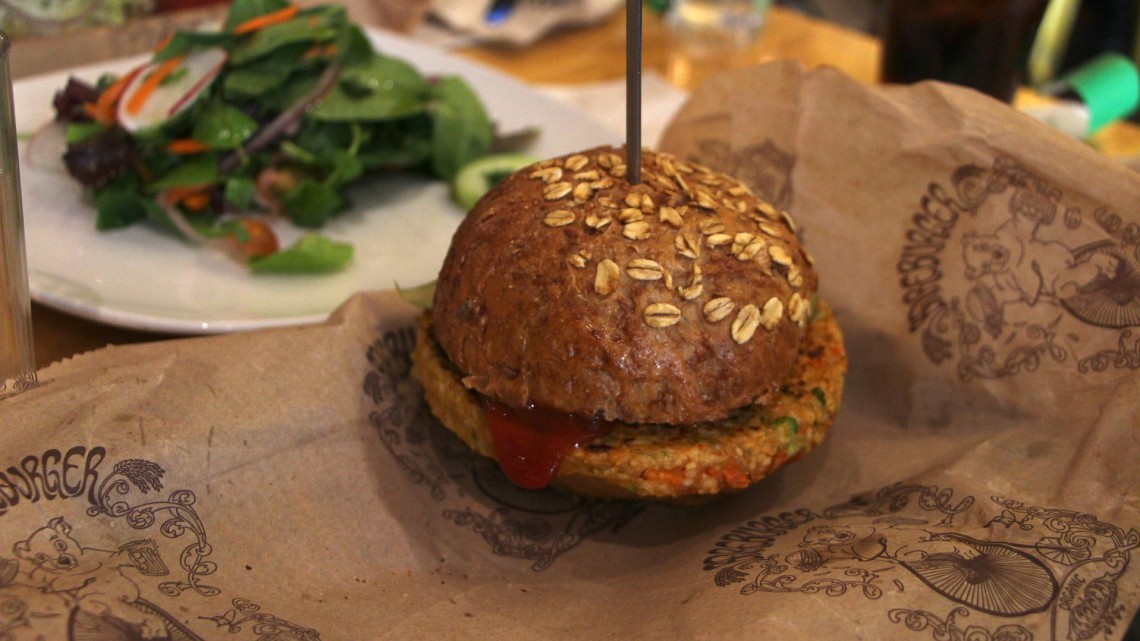Muscle builders and weight training enthusiasts typically assume that it is difficult to build muscle on a vegan diet, given its lack of animal-based protein. However, what they dont realize is that vegan diets feature plenty in the way of plant-based proteins. Moreover, plant proteins contain very little fat as compared to meat that can elevate cholesterol levels and increase the risk of a heart attack.
It is protein that builds muscle NOT meat.
Protein contains essential amino acids that are the building blocks of muscle. The body does not distinguish where the protein comes from, and meat is certainly not the only source.
For example, a 4-ounce piece of beef liver, beef ribs, or ground beef contains approximately 30 grams of protein. You can obtain about this same amount of protein from soy products, namely edamame and tempeh, both of which provide 29 grams and 16 grams respectively for 4 ounces.
There are in fact many serious bodybuilders that are vegan, meaning they eat absolutely no animal products of any kind. Typically, animal protein is filled with unhealthy fat, and since fat intake is of a special concern for those building muscle, a vegan or vegetarian diet offers lower fat plant based proteins.
How Much Protein?
Athletes should consume 0.7 to 1 gram of protein per pound of lean muscle to build muscle and increase its size.
A Goal That Is Realizable
Therefore, the idea of building muscle on a vegan diet is realizable if you know the nutrient information for various kinds of vegan foods. Therefore, the idea that vegetarians and vegans exhibit scrawny, weakly physiques could not be further from the truth, especially when those physiques have been sculpted through weight-training activities.
Just a year ago, a vegan strongman proved that vegans could be exceptionally strong as he hoisted an impressive, record-breaking 1,212.54 pounds over an area of almost three yards (32.8 feet to be exact).
Because protein is the key ingredient needed for gaining and maintaining muscular strength, bodybuilders and weight trainers require regular intake of protein to feed muscle the nutrition it needs to grow strong and get bigger. Therefore, you can follow a vegan diet and meal plan that features protein-rich foods as a part of your weight training and bodybuilding regimen.
Break Up Meals
It is best to break up meal times into several small meals during the day. Include macronutrients, such as fats and carbs, to maintain the energy needed for intense workouts and activities.
In order to achieve bodybuilding goals, experts recommend that weight-training enthusiasts consume a ratio of 30/30/40 of protein/fat/carbohydrates.
Vegan Protein Rich Foods
Some of the vegan, protein-rich foods that bodybuilders can use to build muscle or weight trainers can eat to build strength include these healthy choices.
Nuts and Nut Butters
When it comes to building muscle, you cant go wrong with nuts as œ-cup supplies as much as 15 grams of protein and healthy fats for heart health and energy during grueling workouts.
All nuts are protein rich, and the lower fat varieties include peanuts, walnuts, and almonds. You can select from so many kinds of nuts to eat that they become an unavoidable food source for building muscle.
Of course, some weight trainers are allergic to nuts. However, for anyone who is immune from the allergens, nuts are an ideal accompaniment to a muscle builders diet.
Add nuts to salad, grab a handful as snack. Use but butters on whole grain toast, and fruits. There is even vegan nut cheese.
Beans
Beans such as pinto beans, navy beans, black beans, and black-eyed peas along with lentils are high quality protein sources that are much lower in fat than animal proteins.
1 cup of black beans has 15 grams of protein and only 1 gram of fat.
They support muscle strength and growth and provide various other essential nutrients the body needs, such as calcium, iron and fiber.
Other great beans include winged beans, kidney beans, chickpeas and hummus, and garbanzo beans.
Tempeh and Tofu
1 cup of tempeh contains almost 31 grams of protein and 18 grams of fat. 1 cup of tofu contains 20 grams of protein and 12 grams of fat.
These plant-based soy proteins contain the same essential amino acids as beef. They can be used to make a wide variety of tasty dishes and to replace meat in traditional recipes.
Quinoa
While quinoa does not contain the same amount of protein as tempeh, this whole grain superfood does contain the nine essential amino acids needed for body building purposes and a whopping 24 grams of protein per cup.
Moreover, the selection of quinoa is seemingly endless as there are 120 featured varieties. Quinoa also provides vegan bodybuilders with plenty of carbs for those long, intense workouts.
Greek Yogurt
6 ounces of nonfat or low-fat Greek yogurt contains 16 grams of protein along with lots of calcium, an ideal protein source for those vegetarians who eat dairy.
Vegetables
Soybean sprouts, lentil sprouts, soybeans, and leafy greens are also high quality sources of plant proteins and provide various essential nutrients, such as antioxidants, vitamins, and minerals.
Include, green peas, corn, sun-dried tomatoes, spinach, kale, broccoli, cowpeas, and lima beans, Brussel sprouts, mushrooms, artichokes and asparagus in your diet regularly to get the benefit of these protein rich plant foods.
As you can see, many great plant proteins will support your muscle training efforts, so feel free to eliminate meat and animal products from your diet and go strength train!
There are over sixteen million vegans and vegetarians across the United States who have found out about the easy substitutions for meat in popular and well-loved dishes including pizza, burgers, and tacos while still maintaining their vegan and vegetarian lifestyle. Click here to learn about the diet definitions, benefits, risks associated with this diet, tips for those starting out, and the do's and don'ts of going vegetarian. You can avoid all the the pitfalls and make the transition to a plant diet smooth and easy for you, your family and your health.






